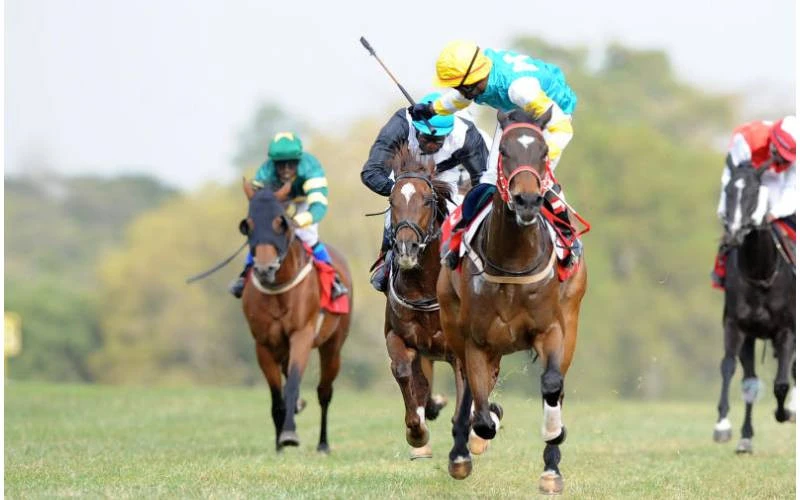Horse racing in Kenya has a rich and fascinating history that spans over a century, evolving from its colonial roots to becoming a majestic display of culture and tradition. While it continues to capture the hearts of many, the journey of horse racing in Kenya is one marked by resilience, innovation, and a deep passion for the sport.
Early beginnings and historical milestones
Kenya’s association with horse racing dates back to the late 19th century. In 1897, the seeds of competitive racing were planted with the introduction of ponies from Abyssinia and Somalia. The formal beginnings of the sport can be traced to 1904 at Kariokor, under the auspices of the East African Turf Club. Yet, the records hint at an even earlier date thanks to the efforts of Lord Thomas Delamere, a prominent pioneer in the country’s racing scene.
Kenya was among the few African countries that continued to nurture horse racing traditions even during the disruption of the World Wars. Indeed, the sport gained prominence in regions like Eldoret, Limuru, Machakos, Molo, Nakuru, and Thompson’s Falls, where dedicated enthusiasts kept the spirit alive through scattered races amidst the turmoil.
The enduring legacy of key figures
The history of horse racing in Kenya is adorned with colorful personas and captivating stories. Lord Delamere was a central figure, known for his audacious character and deep commitment to the sport. His ownership of hundreds of horses contributed significantly to the early development of the racing scene. Notably, his antics, such as locking a hotel manager in a fridge over a disagreement, became legendary tales.
Another prominent character was Sir Derek Erskine, whose love for the sport was matched by his larger-than-life presence. He was instrumental in popularizing thoroughbred racing and was known for his adventurous spirit. The tales of his pursuits, including a comical episode involving escaped pet ostriches causing chaos on Nairobi’s roads, have become an amusing part of the racing lore.
| CASINO | BONUS | INFO | RATING | |
|---|---|---|---|---|
|
bonus
No bonus
|
info
Curacao 1668/JAZ Generous casino bonuses |
|||
|
bonus
Refer a friend and claim KSH 250
See 4 Bonuses
|
info
BK 0000739 PG 0000468 BCLB license, registration bonus, variety of casino games |
|||
|
bonus
Welcome Bonus up to 18,000KES
|
info
Curacao OGL/2024/225/0601 Lots of exciting bonus features |
|||
|
bonus
Start with up to KES 17,500 in Crash Game bonuses!
|
info
BK 0000667 Interesting jackpots & bonuses |
Establishing racing grounds
A pivotal moment in Kenyan horse racing was the development of the Ngong racecourse. David Bowden, a visionary in the sport, laid the foundations for what would become a hallmark of Kenyan equestrian culture. In 1954, after years of preparation, Ngong’s lush green course emerged, comparable to some of the best tracks worldwide. This development provided a platform for showcasing Kenya’s equine excellence and training talents.
Ngong’s scenic beauty and well-maintained facilities have become central to the Kenyan horse racing narrative. Over the years, it has hosted numerous prestigious events, including the Derby Classic, attracting local and international attention.
Cultural impact and economic significance
Horse racing is more than just a sport in Kenya; it’s a cultural phenomenon akin to cricket in India. With its roots deeply ingrained in the country’s social fabric, the industry supports thousands of livelihoods. From jockeys and trainers to stall managers, caterers, and medics, the ripple effect of racing is profound, providing employment and economic stimulation to countless individuals.
The community’s vibrant participation extends beyond the tracks. Families gather for events, where the atmosphere is enriched by music, food stalls, and children’s activities. The legacy of renowned jockeys like Ken Coogan and Julie McCann, among others, highlights the inspiring human stories interwoven with the sport’s evolution.
The future of horse racing in Kenya
Recently, there have been discussions about reinvigorating wagering through bookies, an integral aspect of the racing experience. With Derby Day considered a family outing filled with pomp and revelry, the potential return of bookmakers adds an exciting dimension to the sporting spectacle. High-profile events like the Randox Grand National continue to elevate the status of Kenyan races on the global stage.
As we look to the future, horse racing in Kenya promises to remain a dynamic and integral part of the country’s cultural identity. With its blend of tradition and innovation, it serves as a testament to the enduring allure and spirit of the sport, fostering a sense of pride and community among its passionate supporters.










